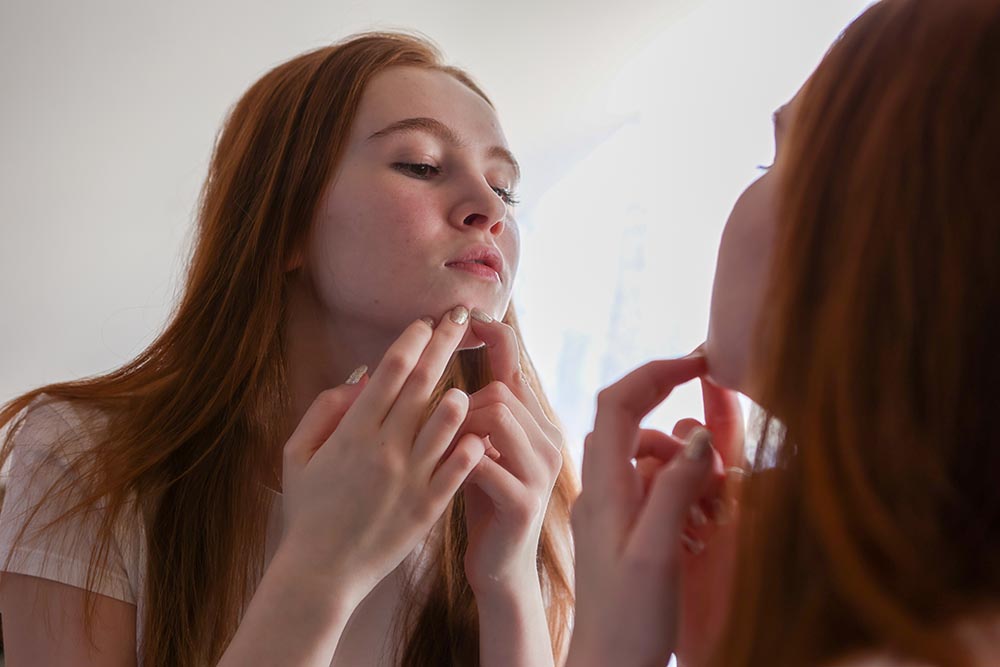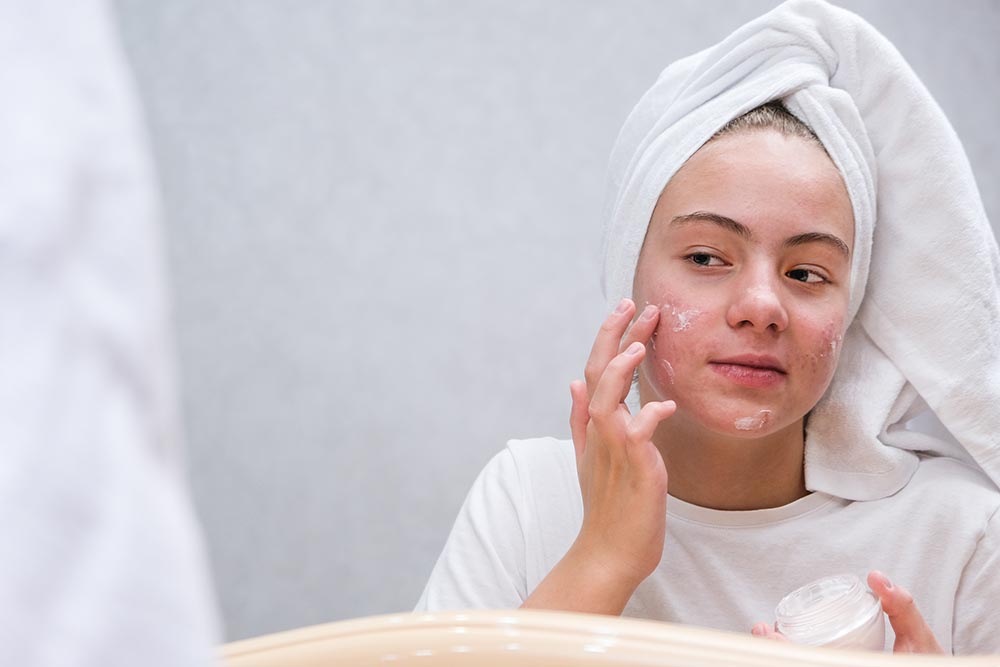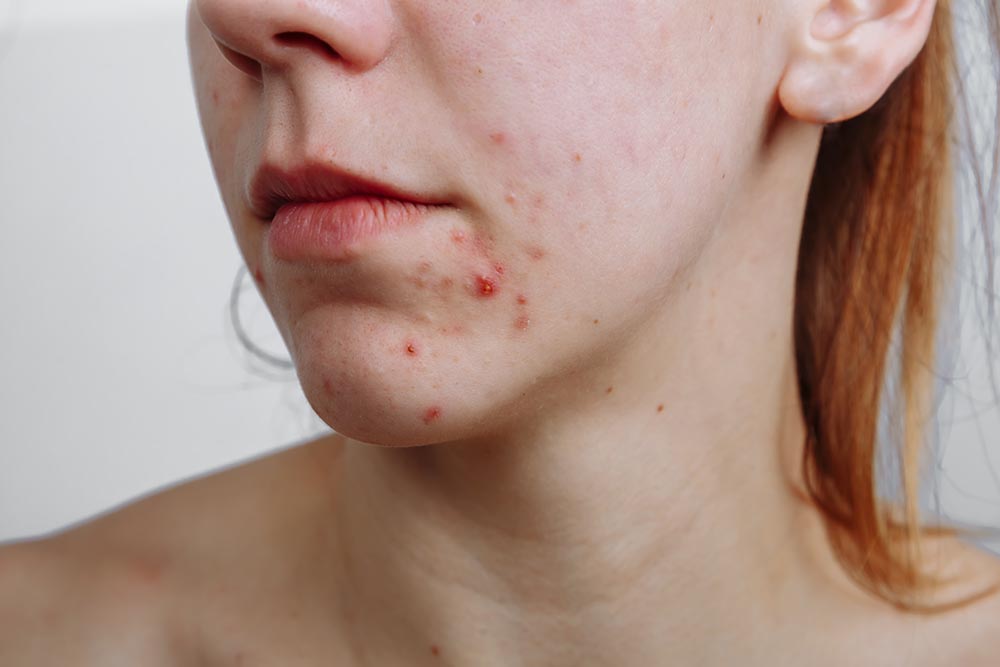Acne is one of the most common skin conditions where the pores of your skin become blocked by hairs, bacteria, sebum, and dead skin cells. These blockages then produce various types of pimples such as blackheads and whiteheads – these can be painful and itchy and make you feel terribly self-conscious about your appearance.
If you are suffering from acne, you are not alone. Again, this is the most common skin condition that most people will experience at some point in their life. In fact, 80% of people aged 11 to 30 will have at least a mild form of acne. Still, knowing that other people suffer from it won’t necessarily make you feel any better about your situation, which is why we are going to look at symptoms, causes, and potential treatments in this article.
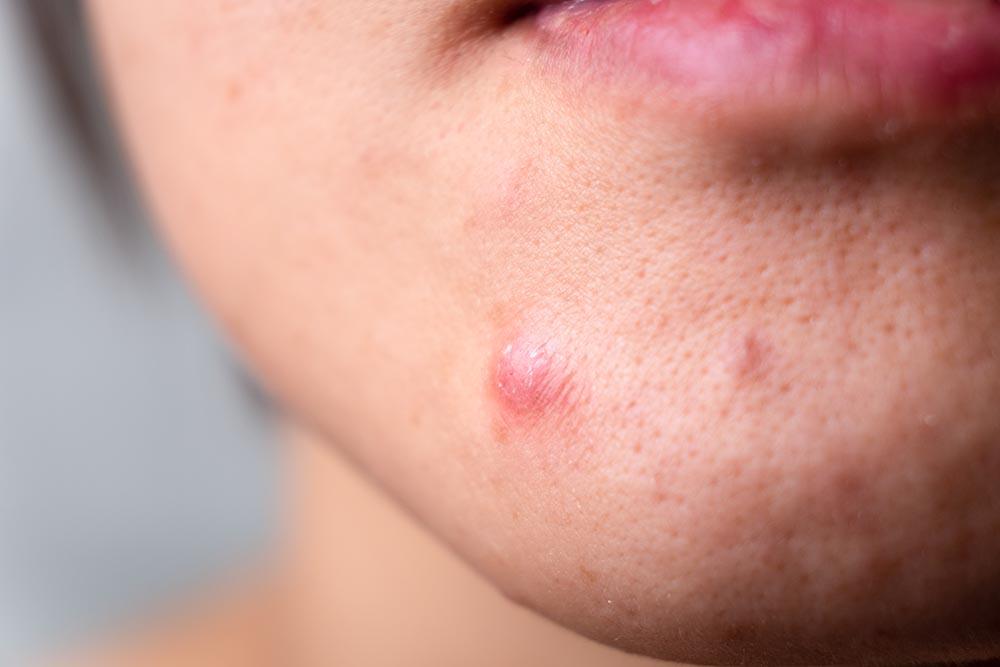
What Causes Acne?
So, what is the cause of acne? Ache is mostly a hormonal condition that is driven by androgen hormones. These typically become highly active during a person’s teenage and young adult years. Anyone with a sensitivity to these particular hormones, when combined with surface bacteria that appears on the skin, and fatty acids that form inside the oil glands, can result in acne forming.
There are a variety of different things that can both cause acne and/or make it worse:
- Changes in hormone levels/fluctuations (i.e., around the time of a woman’s menstrual cycle)
- Picking at spots and pimples
- Wearing certain clothing and headgear (hats, sports helmets)
- Using oily personal care products (certain hair waxes or skin lotions)
- Certain medications
- Environmental factors such as air pollution and weather (high humidity in particular)
- Working in greasy environments
- High levels of stress
- Genetics (sorry folks)!
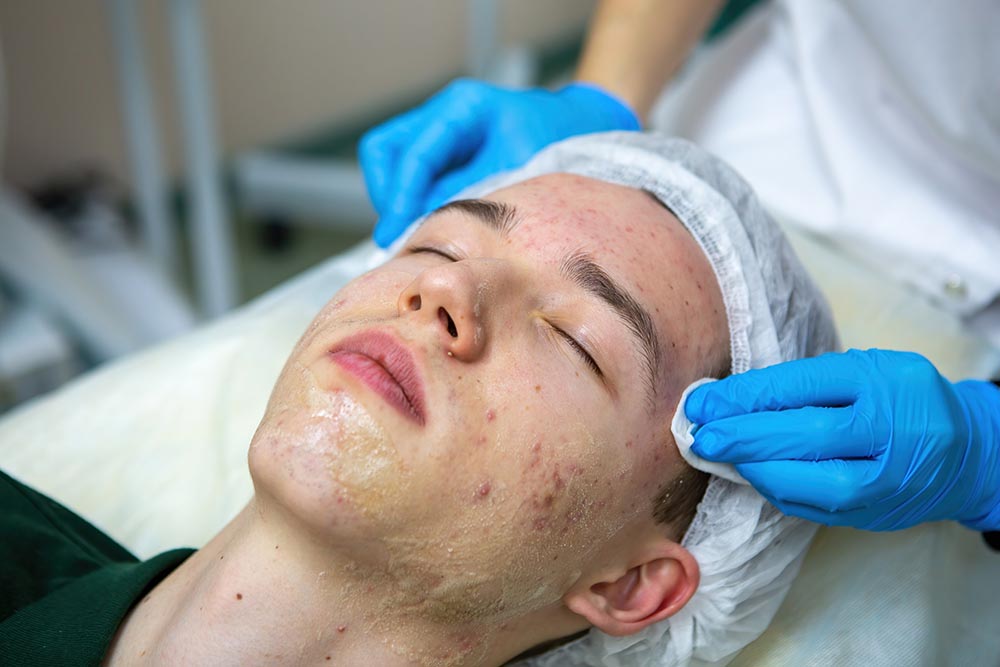
Can acne cause scarring?
Unfortunately, some forms of acne can result in scarring. This happens when the acne penetrates deeper into the skin and damages the underlayers. The important thing is that you avoid touching your face, squeezing pimples, and scratching your sores. As itchy and frustrating as acne can be if you scratch and squeeze too much you will be greatly improving your chances of scarring.
There are certain facial skin-care treatments that can help with acne scarring, however, your best remedy is prevention.
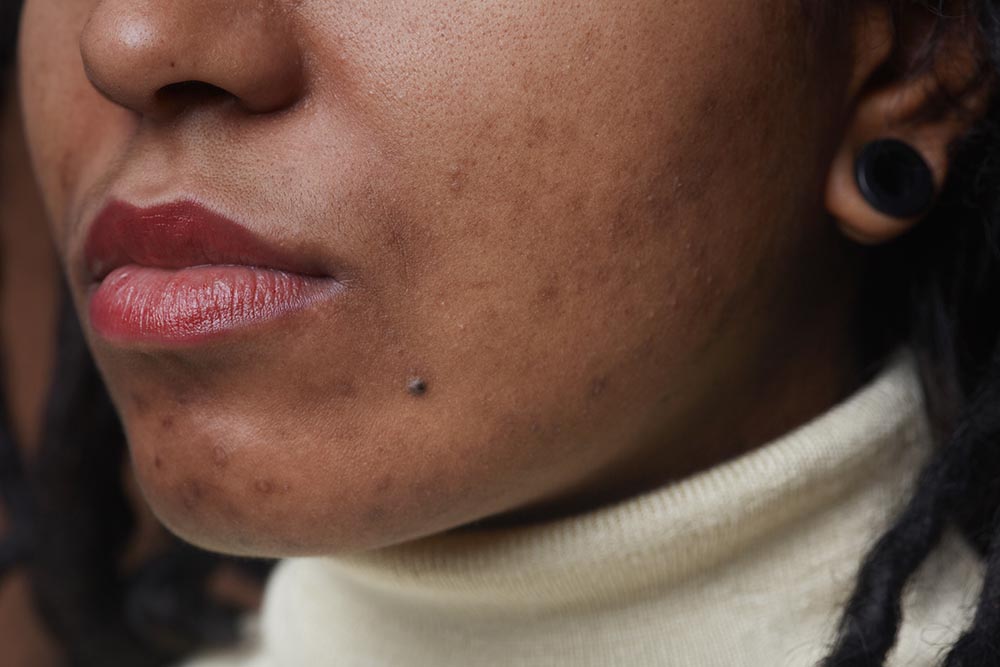
Where does acne occur the most?
Typically, the most common locations where you may have acne are on your face and your forehead. However, you may also get acne on your chest, shoulders, and upper back.
You have oil glands all over your body, but those places, in particular, are where you have the most. The best way to treat your acne will indeed depend on how severe your situation is.
What are the 4 types of acne?
What are the four types of acne? In fact, acne can take many different forms, including:
- Blackheads: blackheads are open bumps that appear on the surface of the skin and are filled with excess oil and dead skin cells. They often look as though dirt has been deposited in the bump, however, the dark spots are in fact caused by light reflection off the clogged follicle itself.
- Whiteheads: whiteheads are bumps that remain closed by dead skin and soil.
- Papules: papules are pink or red bumps that can become inflamed and itchy.
- Pustules: pustules are pimples that contain a yellow pus. They tend to look like whiteheads although they are surrounded by red rings. If picked or scratched, pustules may cause scarring on the skin.
- Fungal acne: also known as pityrosporum folliculitis, fungal acne is a type of acne that occurs when excess yeast develops in the hair follicles.
- Nodules: nodules are solid pimples that form deep beneath your skin and they can be incredibly painful.
- Cysts: cysts are pus-filled pimples that can cause scarring on the skin.
The many forms of acne all have one major thing in common: they can have a huge negative impact on your self-esteem. If you are feeling particularly self-conscious and want to have your acne treated, we advise that you seek help from your healthcare provider as early as possible so that they can best help determine what the most viable treatment option/s are for your individual situation.
How can I prevent pimples on my face?
Unfortunately, preventing acne is something that can be incredibly difficult during normal hormonal changes in the body – if not impossible. However, there are a number of different things that can certainly help to reduce its severity. For example:
- Wash your face daily using warm water and mild facial cleansers.
- Try using non-comedogenic makeup products and always remove it at the end of each day.
- Regularly moisturise your skin.
- Keep your hands away from your face!
Can you improve acne naturally?
You can indeed improve acne naturally. While there is no cure-all, there is much that you can do to help alleviate some of the symptoms of acne. Here are a few home remedies that you may want to try:
- Exfoliate daily
- Take fish oil supplements
- Follow a low glycemic diet
- Cut back on dairy products
- Reduce your stress levels
- Get regular exercise
- Try brewer’s yeast
- Limit makeup
- Wash your face thoroughly
- Resist touching your face
- Avoid popping pimples
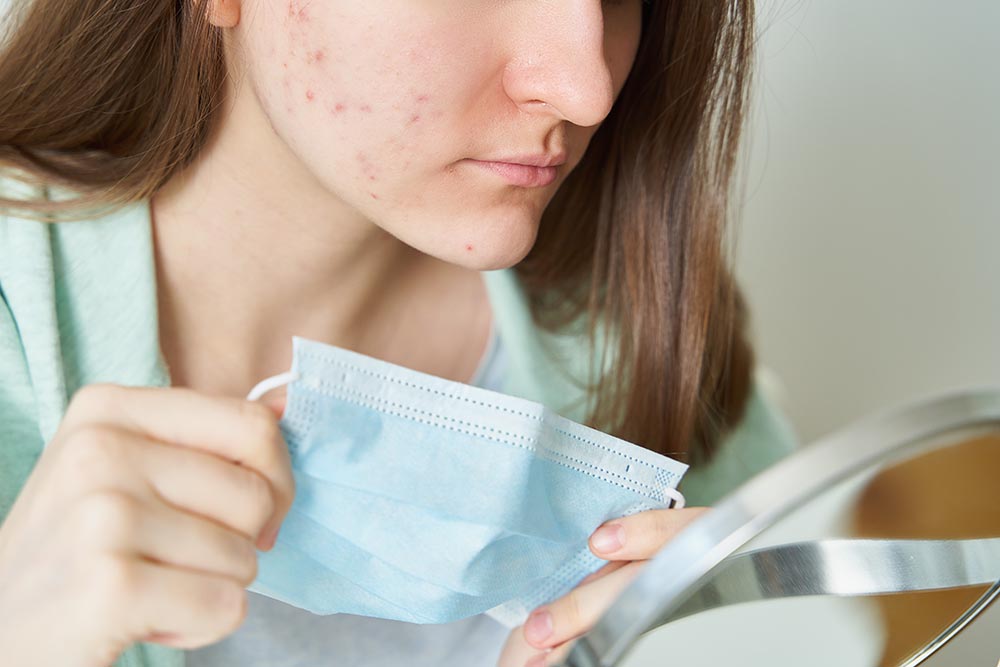
Conclusion
While acne is an incredibly common skin condition, that doesn’t change the fact that it can cause a serious amount of anxiety and trauma. If you are struggling with acne and feel self-conscious about your appearance, get in contact with your local healthcare provider today and they may refer you to a dermatologist (a skin doctor). They might then prescribe you a variety of options, including topical skincare treatments and also orally prescribed medicine. Or, you can find a facial treatment clinic in Neutral Bay.
We hope that this article has been helpful and wish you the best of luck with resolving your acne problem and feeling more confident in your skin.

